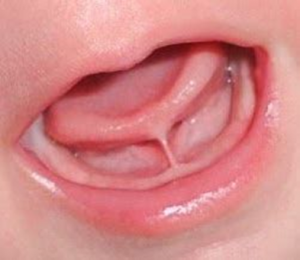Blog
A tongue tie is a restriction in the range of movement of the tongue caused by the thin fold of mucosa (skin of the mouth) known as a frenum or frenulum.
Symptoms of tongue tie in babies include difficulties with breastfeeding, particularly issues with latching on to the nipple, painful breastfeeding and inefficient feeding. Some babies with tongue tie also have issues with bottle feeding. Older babies and toddlers can have issues with eating solids such as gagging, choking, coughing and spitting out foods. In older children, difficulty in pronouncing certain sounds can be an issue also. And in recent years, research has shown a relationship between tongue tie, sleep disordered breathing and neck posture issues in adults.
There are no proven causes of tongue tie. Over the years, there have been personal opinions and theories about the cause of tongue tie such as genetic mutations and metabolic changes related to vitamins but there has been no research to substantiate these claims. We do know that tongue tie is more common in males than females at a ratio of 3:2 and it does tend to have a genetic tendency.

A tongue tie can have many different appearances
Not every frenulum needs to be treated and it should be remembered that a frenulum is a normal part of human anatomy so treatment would only be recommended in certain circumstances. The treatment of tongue tie is considered when the restriction of the tongue is related to symptoms of concern and the surgical procedure is likely to improve the range of motion of the tongue. It can involve just a simple snip of the frenulum with scissors or a scalpel, lasering the frenulum, or a ‘Z plasty” surgical procedure which also involves suturing (stitching) the wound. This procedure is usually combined with a course of customized tongue exercises for several weeks after the procedure and in some situations, exercises are required prior to the surgical procedure.
Furthermore, the treatment of tongue tie should be considered an elective procedure as it only affects quality of life issues. We often tell our patients that you can live your whole life with a tongue tie and indeed many of our adult general dental patients have lived for many years with a tongue tie. Needless to say, many of these patients have associated issues and have learned to live with them and most are happy to have treatment to get rid of those issues.
Our tongue tie Melbourne clinic at Coburg Dental Group comprises a team of experienced health professionals headed by Dr Jeffrey Kestenberg. Three orofacial myologists and a international board certified lactation consultant complete the team. We have performed over 10,000 procedures. Our network of allied health care professionals throughout Victoria assist our patients with care both before and after the procedure.
A referral to see Dr Kestenberg at Tongue Tie Melbourne is required to ensure that the appropriate diagnosis and aftercare is prescribed for the best possible outcome.
Further information can be found at www.coburgdentalgroup.com.au/frenectomy
Any surgical or invasive procedure carries risks. Before proceeding, you should seek a second opinion from an appropriately qualified health practitioner.




